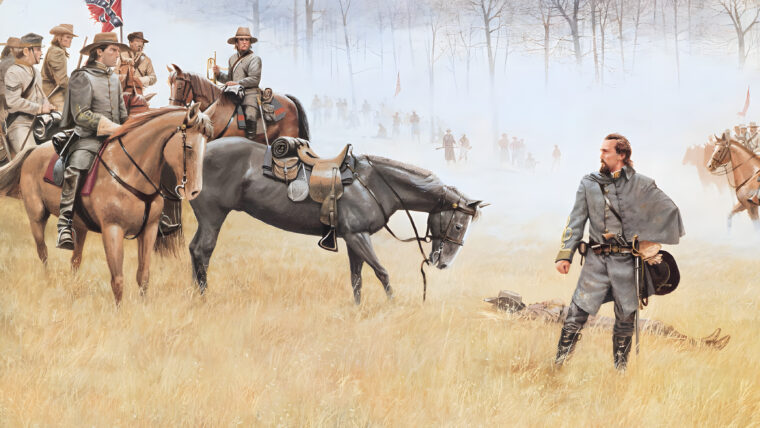
general john bell hood
The Battle of Tupelo, June – July 1864
By Edward Holub and John Marchetti
“For God’s sake, if Mr. Forrest will let me alone, I will let him alone. Read more

general john bell hood
By Edward Holub and John Marchetti
“For God’s sake, if Mr. Forrest will let me alone, I will let him alone. Read more
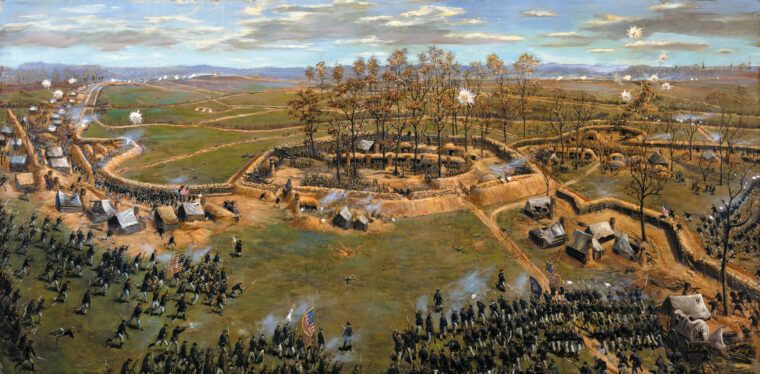
general john bell hood
By the early spring of 1865, the Southern Confederacy was on the cusp of extinction. In every theater of the four-year-old Civil War, the gray-clad Rebels were getting the worst of things. Read more
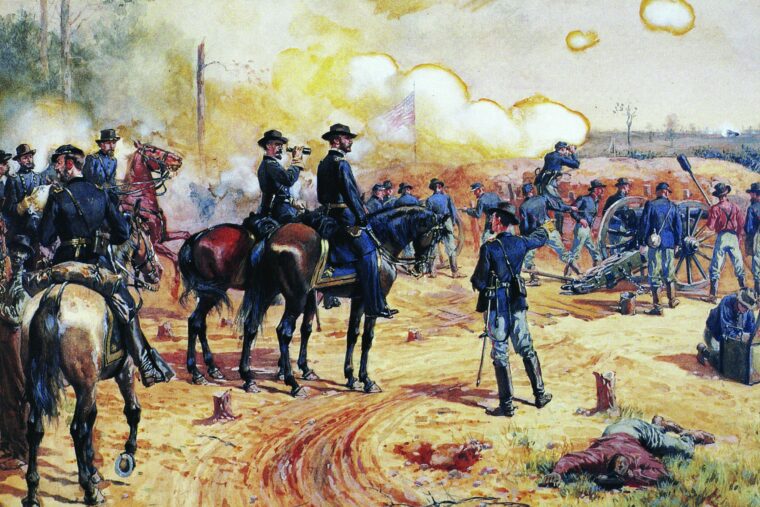
general john bell hood
During the early afternoon of July 9, 1864, the 103rd Ohio Volunteer Infantry Regiment of Maj. Gen. John M. Read more
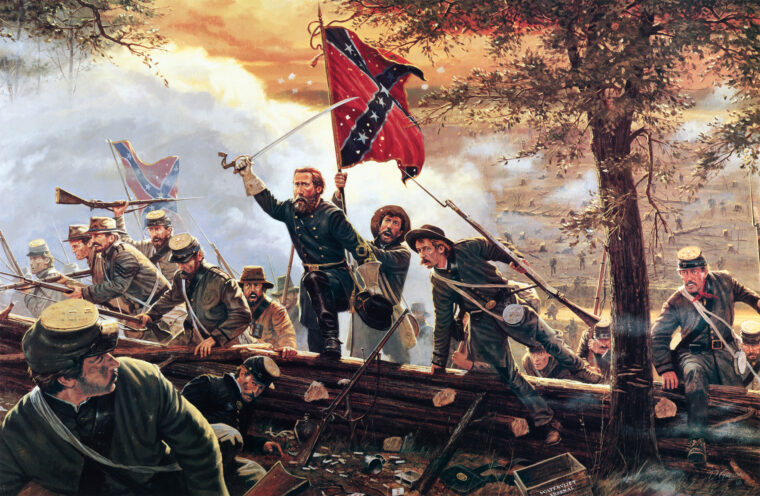
general john bell hood
With just an hour of daylight remaining on the smoke-shrouded battlefield near Gaines’ Mill six miles northeast of Richmond, Virginia, Confederate General Robert E. Read more
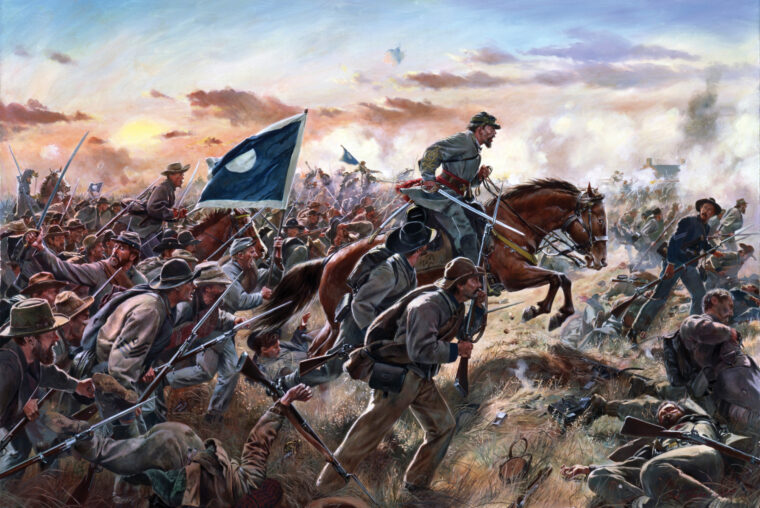
general john bell hood
Major General Patrick Ronayne Cleburne rose to his feet in the early afternoon of November 30, 1864, when he saw the courier galloping toward him. Read more
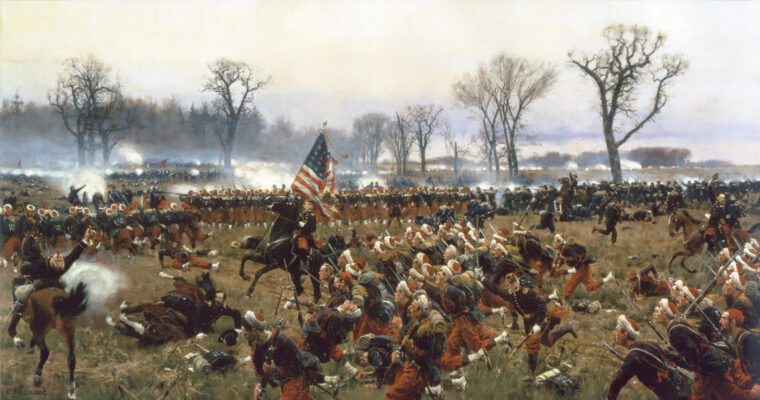
general john bell hood
Word spread like wildfire through the camps of the Army of the Potomac during the second week of November 1862: “Little Mac” was out, “Old Burn” was in. Read more
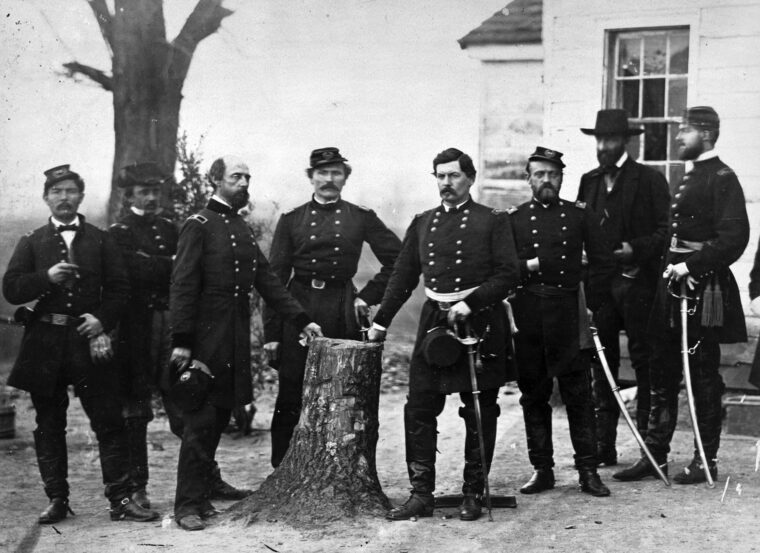
general john bell hood
After an almost uninterrupted, four-month-long string of Union successes beginning in early 1862, followed by the advance of a 100,000-man enemy army to the eastern outskirts of its capital at Richmond, Virginia, the Confederacy suddenly found itself in a life-or-death struggle for its very survival. Read more
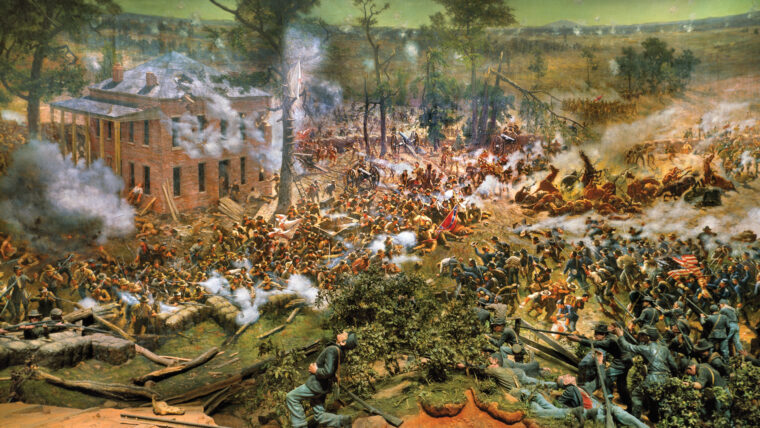
general john bell hood
The guide shook uncontrollably when the gray-clad general pointed his pistol at him in the backwoods of central Georgia on the evening of July 21, 1864. Read more
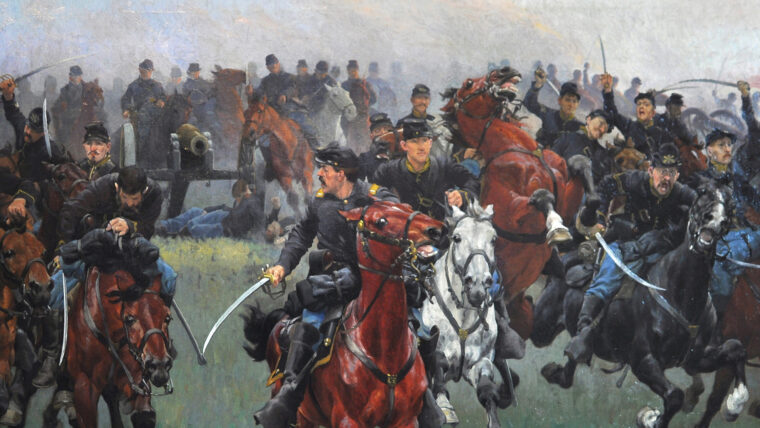
general john bell hood
The celebrated 2nd U.S. Cavalry, like its brother regiment the 1st U.S. Cavalry, was formally created by an act of Congress in March 1855. Read more
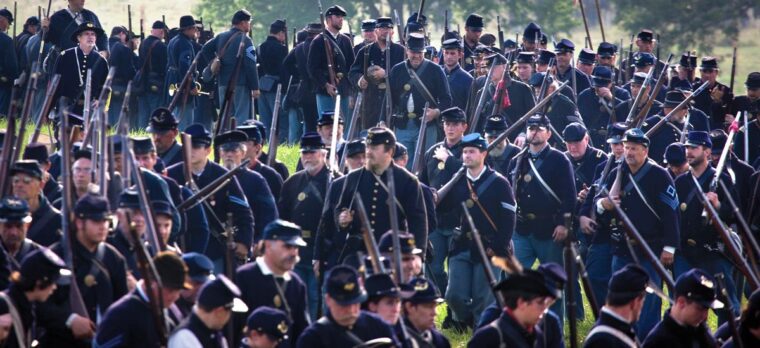
general john bell hood
By Mike Phifer
On July 2, the day of the Battle of Gettysburg’s Peach Orchard conflict, Army of the Potomac commander Maj. Read more
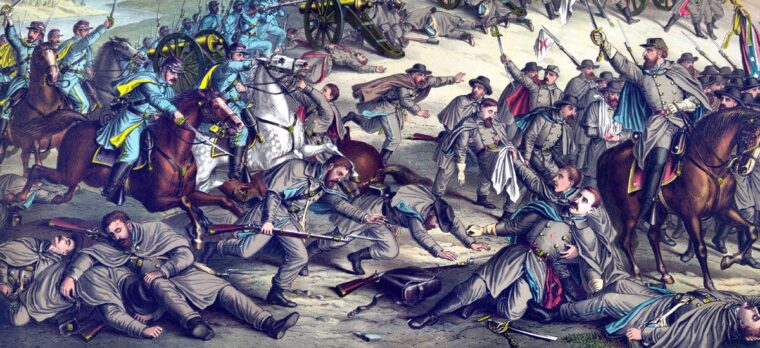
general john bell hood
“Oh, the Lord, Henry but didn’t the Rebs get the devil sure enough,” Private Charles Grundy of the 10th Illinois Infantry Regiment wrote to a friend three days after the conclusion of the Battle of Nashville fought December 15-16, 1864. Read more
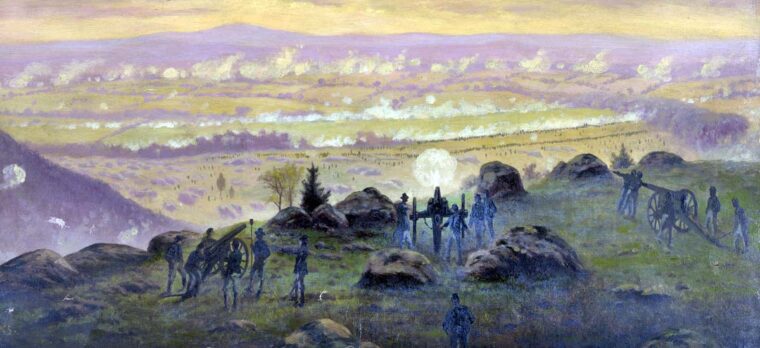
general john bell hood
Ward’s Union Brigade faced some of the most formidable troops in General Robert E. Lee’s army on the afternoon of July 2. Read more
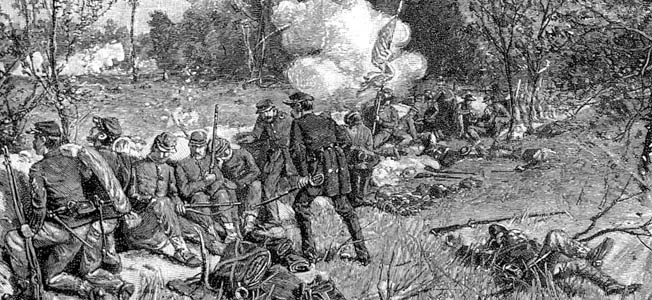
general john bell hood
The Chancellorsville campaign has been called many things, from “a stupendous defeat” for the curiously cautious “Fighting Joe” Hooker, to Robert E. Read more
general john bell hood
For General Philiip Sheridan, war was a tonic.
“He was a wonderful man on the battle field,” one of his fellow Union officers recalled, “and never in as good humor as when under fire.” Read more
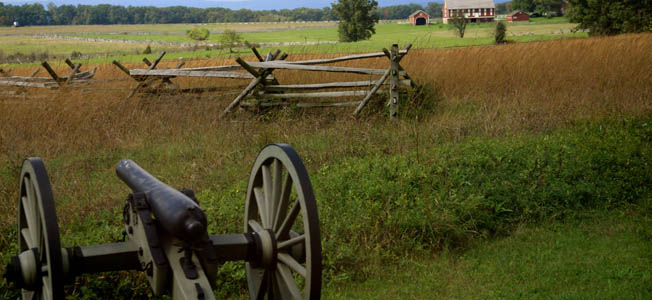
general john bell hood
Despite roughly 50,000 casualties reported on both sides during the Battle of Gettysburg, there was only one reported civilian casualty: Mary Wade, a seamstress, was hit by a stray bullet while making bread in her kitchen. Read more
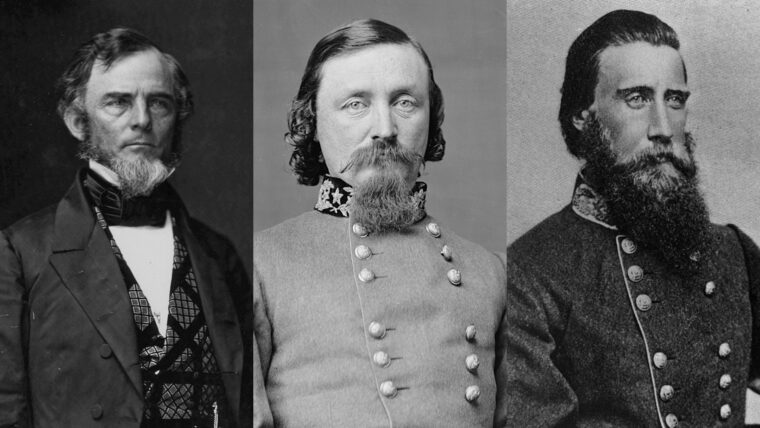
general john bell hood
Confederate Maj. Gen. Gideon Pillow. After gaining ground trying to cut an escape path for the Confederates during the February 1862 siege of Fort Donelson by Union forces led Brig. Read more
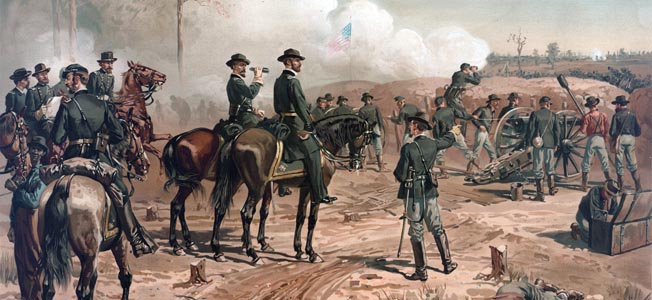
general john bell hood
On September 3, 1864, a triumphant Maj. Gen. William Tecumseh Sherman telegraphed Washington, “Atlanta is ours and fairly won.” Read more
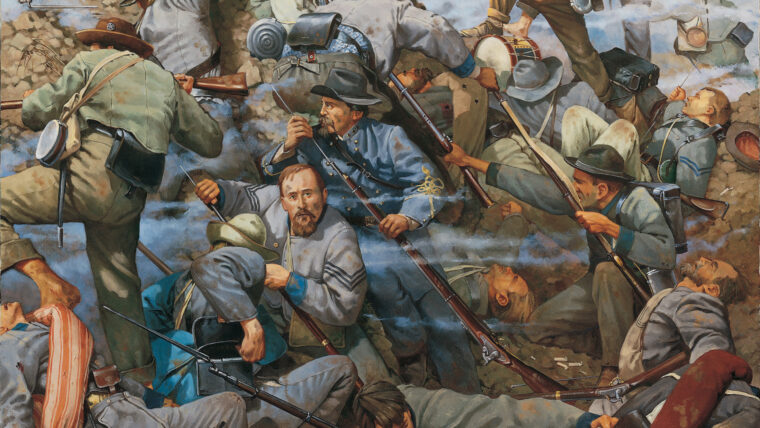
general john bell hood
On the morning of November 30, 1864, Fountain Branch Carter, a 67-year-old farmer, planter, and Confederate sympathizer, watched as his front yard in Franklin, Tennessee, filled up with Union soldiers pitching tents and starting campfires. Read more
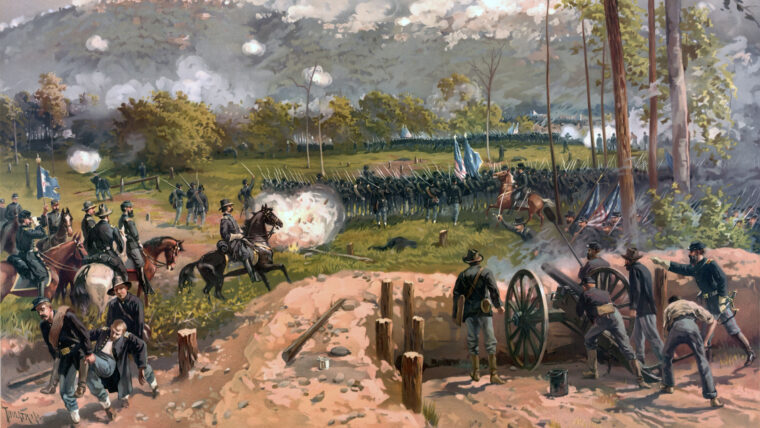
general john bell hood
Shortly after dawn on June 27, 1864, Union artillery crews sprang into action on 200 guns facing miles of the Confederate defenses along the Kennesaw Line near Marietta, Georgia. Read more
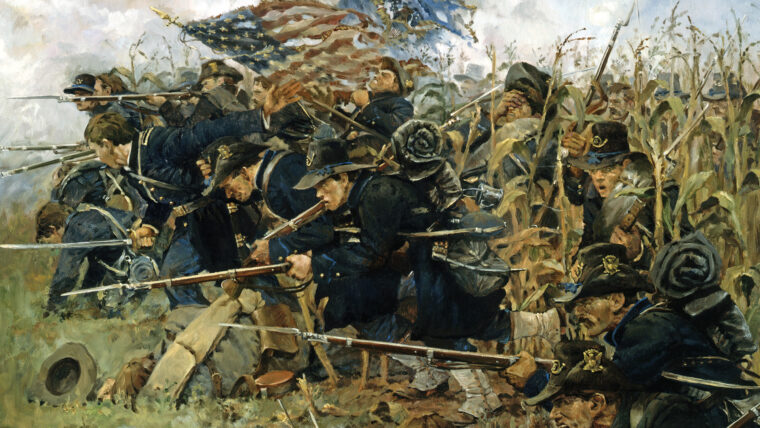
general john bell hood
The White House was a somber place in the summer of 1862. The Civil War was in the midst of its second costly year, and the Union armies had yet to win a significant victory in the eastern theater. Read more